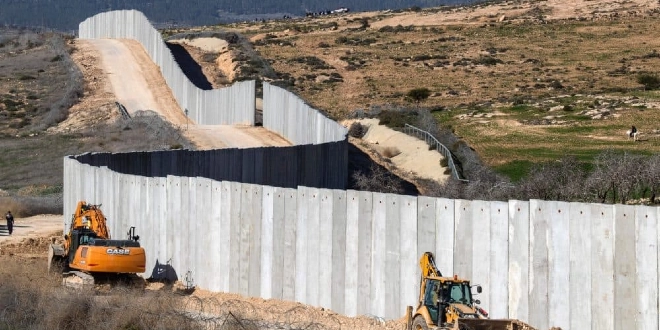In the northern regions of Israel near the Lebanon border, residents are increasingly anxious following the recent killing of Saleh al-Arouri, the deputy leader of the Palestinian militant group Hamas, in Beirut. The incident has raised fears of a potential war with Lebanon.
For almost three months, Israel and Hamas have been engaged in combat in Gaza, with Israel also exchanging fire across the border with Lebanon’s Hezbollah, an ally of Hamas. This ongoing conflict has already affected the atmosphere in Nahariya, a coastal city in Israel, but tensions escalated notably after Arouri’s death on Tuesday.
Lebanese security forces and Hamas have accused Israel of being behind the strike, though Israel has not officially commented on the incident. Local resident Lee Zorviv, a clothing shop owner, expressed the community’s heightened concern, particularly regarding Hezbollah’s possible retaliation.
Hezbollah has promised that Arouri’s death will not go unanswered, condemning it as a grave assault on Lebanon and a concerning escalation.
The previous war between Israel and Hezbollah in 2006 resulted in significant casualties, predominantly civilians in Lebanon and mostly soldiers in Israel.
The United Nations peacekeepers, who monitor the border area, cautioned on Wednesday about the potential for devastating consequences if tensions escalate further. UNIFIL deputy spokeswoman Kandice Ardiel urged all parties to halt the violence and called for restraint from influential intermediaries.
Hezbollah, supported by Iran, is believed to have built a considerable arsenal over the years. Israel, meanwhile, has received military backing from the United States.
In Nahariya, Zorviv noted the impact of the situation on daily life, including shortened school days and a general atmosphere of concern and low morale.
The conflict in Gaza, which began with a significant attack by Hamas on Israel on October 7, has claimed numerous lives and caused extensive destruction in Gaza. Israel’s continuous offensive aims to dismantle Hamas, resulting in substantial casualties.
The rising fear of war with Lebanon has already affected the livelihoods in Nahariya. Zorviv mentioned a drop in shop sales and the closure of some businesses. Military presence is visible in the area, with both uniformed and civilian-clothed individuals carrying automatic weapons.
Local residents, ranging from teenagers to the elderly, express a pervasive sense of fear in the city. David, a resident, anticipates further violence, suggesting that either a strong Israeli reaction to Hezbollah or a Hezbollah response to the Beirut killing is imminent.
Following Arouri’s death, the Israeli military has stated its high level of preparedness for any scenario, as confirmed by army spokesman Daniel Hagari, who refrained from commenting directly on the Beirut strike.
In Nahariya, the mood is tense, and residents like Zorviv express their fear, feeling as if they are in a constant state of war.


